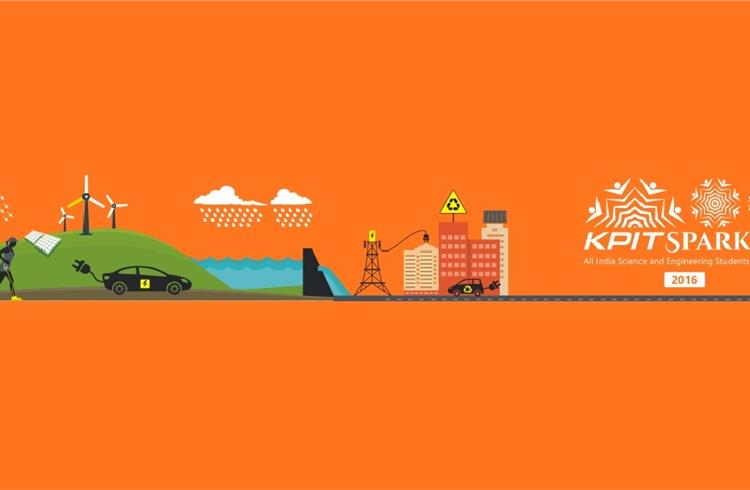Fostering Innovation for a Better World
From introducing the world of mathematics to the concept of zero, to developing the first scientific drainage system in the Indus civilisation circa 2500 BC, Indian history abounds with examples of brilliant solutions for complex problems.
India is a country with a rich heritage of innovation. From introducing the world of mathematics to the concept of zero, to developing the first scientific drainage system in the Indus civilisation circa 2500 BC, Indian history abounds with examples of brilliant solutions for complex problems.
However, the situation is drastically different today. In the 2015 Bloomberg Innovation Index, an annual ranking of the world’s 50 most innovative countries, India was absent. In fact, with the exception of India, every other one of the BRICS (Brazil, Russia, India, China, South Africa) nations was featured on this index, as well as smaller countries like Malta and Tunisia. A survey from The Economist's Intelligence Unit showed that in the long run, ‘economic growth’ depends on the ‘creation’ and ‘fostering' of 'an 'environment 'that' encourages' innovation. India needs to revive and foster a culture of problem solving and out-of-the-box thinking in order to improve economic growth.
Driving innovation for a better world
If necessity is the mother of invention, then India is certainly fertile ground for innovation. In a country with over 1 billion people, and the world’s largest youth population of more than three hundred million, there are specific challenges, as well as opportunities.
One of the foremost challenges that India faces is related to energy and environmental issues. A recent World Health Organization report stated that 13 of the world’s 20 most polluted cities are in India, with Delhi having six times the level of airborne particulate matter than what is considered safe.
This data begs the following questions: How can we come up with an energy which is clean and green? How can we come up with technologies that can store that energy over a period of time? How can we make that energy generally available to all, generated and consumed in a distributed way? When it comes to automotive and transportation, how can you ideate solutions which are clean, green, safe, comfortable, connected? After all, cars and trucks contribute one-quarter to one-third of the air pollution in Indian cities, with diesel vehicles being significantly worse than petrol ones.
It was with questions like these in mind that ‘KPIT Sparkle’ was conceptualised. A nationwide contest open for students of science and engineering from research institutions, science and engineering colleges, KPIT Sparkle is an innovation and design contest. This contest is the perfect platform for the potential innovator who wants to develop technologies to solve problems that matter and can make the world a better place. KPIT Sparkle does not give contestants a specific problem to solve; rather it defines the area in which students will solve the problems. These areas are very critical for the world at large- the area of energy and the area of transportation. Students themselves can observe the world around them and then decide which problem within these areas they want to solve.
Creating the right environment for problem solving
Innovation and creative problem solving needs to be nurtured, and this is not happening nearly enough in India. Recent data from Geneva-based World Intellectual Property Organisation revealed that out of the 214,500 applications filed last year, Indian companies or academic institutions accounted for only 1,394 patent cooperation treaty (PCT) applications. A comparison of regional data indicates that India accounts for only 1.2 per cent of the overall patents filed from Asia. This is why initiatives such as KPIT Sparkle are so important.
In its previous edition — also being the first — KPIT Sparkle received extraordinary response from students, with over 400 ideas from 1000 students across 17 states of the country. It is a platform where every innovator should be present as it gives the opportunity not only to work and compete with students all over the country, but also be guided by leading scientists, industrialists and academicians. This is an opportunity for innovators to incubate their best ideas and with the help of some of India’s best minds, perhaps one day even build successful businesses. KPIT Sparkle does not only provide nationwide recognition to you but also a chance to win prizes over Rs 21 lakh. Your working prototypes as well as your posters will be judged by eminent personalities of India and will be awarded. The last date of registration is September 20.
Fostering a culture of innovation, problem solving and out-of-the-box thinking is crucial to the success of India as a technology superpower. By encouraging students to keenly observe the world around them and apply textbook concepts to solve real life problems, we can nurture the next generation of bright minds who have the ability to benefit the world with their creativity.
by Ravi Pandit, Co-founder, Chairman & Group CEO, KPIT Technologies
To find out more, visit: www.kpit.com/sparkle
RELATED ARTICLES
Powering the Future: Charting growth trajectory of India's EV sector
As India charts its course towards a greener and more sustainable future, the electrification of the automotive sector i...
Navigating the Surge: Specialised insurance for the rise of EV fleets in India
Rakesh Jain, CEO of Reliance General Insurance on how the evolving fleet electric vehicle market is creating demand for...
Fast evolving auto industry needs befitting HR solutions
Layam Group's G S Ramesh discusses how some of the HR challenges in startups or even existing companies can be diverse a...





 14 Sep 2015
14 Sep 2015
 8942 Views
8942 Views





 Autocar Pro News Desk
Autocar Pro News Desk




